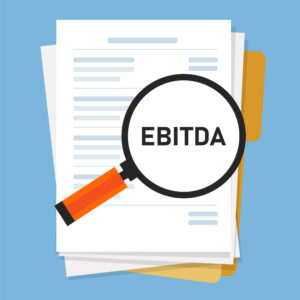 In this age of texting and social media, who doesn’t love a good acronym? YOLO, TMI, ROTFL — the list is endless. However, there is one acronym in particular that often needs multi-level clarification: EBITDA. A common term utilized in the field of mergers and acquisitions (M&A), among others, EBITDA is a salient and useful financial metric. So what exactly is EBITDA and why is it important?
In this age of texting and social media, who doesn’t love a good acronym? YOLO, TMI, ROTFL — the list is endless. However, there is one acronym in particular that often needs multi-level clarification: EBITDA. A common term utilized in the field of mergers and acquisitions (M&A), among others, EBITDA is a salient and useful financial metric. So what exactly is EBITDA and why is it important?
EBITDA stands for Earnings Before Interest Tax Depreciation (and) Amortization.
Investors often use this metric to assess how well a company uses its cash from operations and/or borrowings and determine its ability to generate value in the long term.
On the surface, the calculation is fairly straightforward: take the company’s net income and add back any interest expense, income tax expense, depreciation (on tangible assets such as leasehold improvements or equipment), and amortization (on intangible assets such as trademarks and copyrights.). These items can easily be traced to a general ledger or other financial records.
However, EBITDA has shades of grey that can make this straightforward calculation. Companies will often present an “adjusted” EBITDA, a number that reflects a level of insider judgment and perception. Upon disclosure, financial analysts and acquirers may or may not agree with the company’s assessment.
It is fairly common that companies will add back one-time or non-recurring items to their adjusted EBITDA. For example, if a company decides to discontinue a product line, closes a factory, or disposes of a tractor, the company would add back the loss related to those specific events. The premise is that these outlying factors should not be used to evaluate the company’s continuing operations. In addition, write-offs like the ones mentioned do not directly impact cash and should not be included in EBITDA.
Items that fall into this “grey area” become negotiating points in M&A transactions — especially because many companies are purchased based on their EBITDA. Adjustments have tremendous implications on the potential selling price of the business. As a result, contentious negotiations between buyer and seller often ensue.
Often, the definition of what constitutes a one-time item (vs. ongoing operating performance) is a sticking point. Ramifications from the pandemic, including purchases of PPE and abandoned office space, have further complicated adjustments to EBITDA.
When it comes to adjustments that are made to EBITDA, the answers are often complicated. Both the seller and the buyer will generally agree to revise EBITDA when certain adjustments are truly unique in nature, such as the ones detailed above. When we encounter these types of adjustments, AcceleratingCFO will always take the clearest and most transparent route to communicating these items to the opposing party. The last thing you want to endure in a sale of your business is a last minute modification to the purchase price due to poorly substantiated changes to profitability. These types of disputes will typically result in mistrust with the opposing side and will often times result in both sides walking away from the deal.
Takeaway: Because of the importance of the EBITDA metric in calculating purchase price, it is crucial to work with a seasoned veteran who can isolate transactions on a seller’s books and determine whether or not the quality of their EBITDA calculation is accurate or artificially inflated to maximize purchase price.
If you need a free consultation, please contact us at info@acceleratingcfo.com.
Co-founders & Managing Partners
AcceleratingCFO